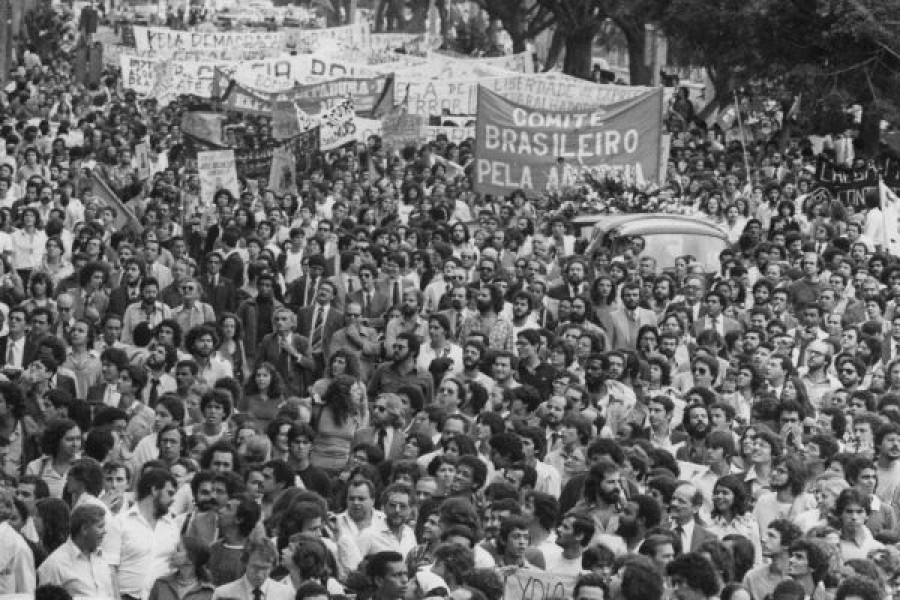Background: Two Decades of Dictatorship
From 1964 to 1985, Brazilians lived under a military dictatorship that suppressed trade unionists and young political activists. Over 400 people were killed or disappeared, and thousands were tortured or subjected to other severe abuse.
While in power, the regime sought to protect itself. A 1979 amnesty law allowed exiled activists to return, but was also used to shield human rights violators from prosecution. Those perpetrators have never faced criminal justice. Some reparations initiatives and limited truth seeking have taken place, but much remains to be done.
The Beginnings of Accountability
As Brazil’s dictatorship came to a close in 1985, civil society and religious entities sought to investigate its human rights abuses. The Archdiocese of São Paulo studied hundreds of military court records and in 1986 published a report, Brasil: Nunca Mais, (Brazil: Never Again) documenting the widespread and systematic practice of torture during the dictatorship.
The first significant institutional effort by Brazil towards accountability was a law—Act 9140—passed in 1995 that acknowledged the deaths of 136 missing persons.
The 1995 law also established a Special Commission on Deaths and Disappearances. In its final report, delivered in 2007, the Special Commission documented 479 cases of forced disappearance; acknowledged state responsibility; and created a framework for compensating victims’ families.
Another commission—the “Amnesty Commission”—was charged in 2001 with granting reparations for victims of abuses not covered by the first commission. As of mid-2010, financial compensation had been awarded in over 12,000 cases.
In recent years, Brazil has seen increasing public debate over its past violations. Congress began in 2010 to consider creating a national truth commission. Debate was strengthened later the same year, when the Inter American Court of Human Rights—Latin America’s regional human rights court—decided Brazil’s 1979 amnesty violated Brazil’s regional human rights obligations.
ICTJ's Role
ICTJ is assisting Brazil to confront this legacy of state-sponsored violence by supporting civil society and state institutions in their work to achieve justice.
Since 2007, ICTJ has worked with the São Paulo Attorney-General’s office, the Ministry of Justice, and other key stakeholders.
- We have shared information on best practices for truth commissions, based on our knowledge of experiences world-wide.
- We have organized discussion and trainings on transitional justice and truth and accountability, amongst other topics.
- We have advised on opportunities for taking action against human rights violators using civil law litigation strategies.
